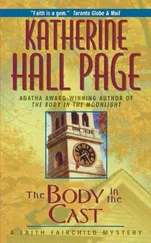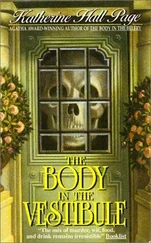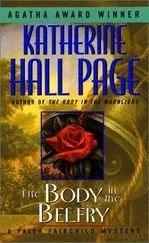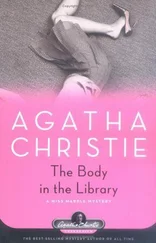“Come on. They have bathrooms at the church.
And it’s getting late.”
They said good-bye to Mrs. Hart and put on their woolen cloaks. Tom draped a plaid blanket over his shoulders. He’d seen a print of a New England minister of the time so attired and had adopted the garb himself. It meant he was the warmest person on the Common, too.
They stepped outside. The moon, full two days earlier, was still large and bright. The cold early-morning air seeped through their clothes. Faith was chilled. It was 4:15.
The Millers were ready to leave, too. You had to get in line early if you wanted a turn at pulling the bell rope. Faith was relieved to see Patrolman Dale Warren was with them. As she did every year, Pix was urging her family to pretend that they actually were on their way to sound the alarm.
“It was cool, maybe not as cool as today, but definitely not warm. Everyone who lived close to the green, the way we do, would have been gathering at the tavern, waiting for information about the British troops. Keyed up—something was finally happening—but scared, too.”
Faith had heard it all before, yet this year she thought Pix’s voice held real fear. They left them at the bottom of Belfry Hill and walked briskly toward St. Theresa’s. It was still pitch-dark, but Aleford was filled with activity. Cars were parked on the side streets; Main Street was blocked off. Figures, some in period dress, passed by, flashlights illuminating them for an instant. Despite the numbers of people about, the town was quiet—lying in wait, as Pix had said. Inside St. Theresa’s hall, the contrast was immediate.
All the lights were on. It was warm and noisy. The Minutemen kept up a steady stream of conversation as they ate. Faith blinked at the sudden change and grabbed at Ben’s cloak as he started to race off.
The Aleford Militia had been founded in 1773 and was still going strong, an uninterrupted history documented by their meeting records. It was open to any U.S. citizen over the age of eighteen and, unlike other Aleford institutions, a number of its members actually lived out of town. Just as there had been several generations from the same family on the green over two hundred years ago, there were several generations of various families represented in the Minutemen. In 1775, Aleford had, strictly speaking, not organized a company of Minutemen, members of the militia who would be ready to fight at a moment’s notice, but it kept the militia as such. The mists of time and preju-dices encouraged by myth had obscured this fact long ago and Minutemen they were.
The first person Faith saw was Gus Deane devour-ing a large mound of scrambled eggs and sausage, using his toast to help. It looked delicious. Faith got her own plate, parked Ben and his at a table with some other children, then went over to chat with Gus, who was Capt. Ebenezer Sewall, the head of the militia today. He was regaling a small group with reminis-cences of Patriots’ Days past.
“Remember the year George came round the bend at the tavern during the rehearsal, riding his daughter’s little hobbyhorse instead of a real one? I thought I’d die laughing. Don’t know how we made it through the actual thing without cracking up. When he came riding up to the tavern shouting, ‘The Regulars are coming!’ everyone kept picturing him on the damned toy!”
Faith looked at the men around her, who had joined in Gus’s merriment. The room was at a fever pitch of excitement, as if they really were preparing to defend their rights, their village. Besides the talk, there was a continuous bustle in the adjoining rooms. The women and older children were managing the breakfast things. Miss Lora, dressed as a servant girl, a long checkered kerchief crisscrossed over her bodice, came by with a platter of piping-hot sausages, the steam curling up to her face. She paused to say hello.
Ben was in heaven. Others were putting the finishing touches to their costumes, adjusting hats, garments.
One man was handing out the muskets from the small stage at one end of the hall.
“The British are coming!” Bonnie Madsen called from the door, and the company from Boston that assumed this role each year filed in. They were impressive. Bright silver buttons gleamed on their red coats, silver gorgets at their throats. Their wigs were elaborately coiffed. Anything that was supposed to shine did. Tom had told her each outfit cost upward of a thousand dollars, all made by hand. In contrast, the farmers and artisans who made up Aleford’s force got away cheap—fringed homespun shirts, rough jackets and vests. Some wore the tricorne hat. The only gleaming metals aside from a buckle were a few pewter flasks slung from their shoulders on leather thongs. Others had canteens, homemade wooden ones. Many of the men had full beards. Faith’s own son was sporting a red mustache from the fruit punch put out with the orange juice. She went over to the table to get a napkin.
Ben’s eyes grew wide as he watched one British major pour himself some coffee and select a doughnut. The drummer boy came up next to him and grabbed two. “Don’t sneeze on the doughnuts, Nathan,” the major bellowed as the young man reached for a pocket handkerchief. Ben ducked behind his mother’s voluminous skirts.
“Is it time?”
“Almost,” she answered, and looked about the room for Tom.
He was talking to Nelson, who was dressed like the others, except he wore a black armband. Millicent, already at the green, might fuss that it wasn’t authentic, but even she wouldn’t say he couldn’t wear it. Last year, Margaret had been here, too, helping with serving. A man Faith didn’t recognize stood beside Nelson. Though he was dressed for the reenactment, she was willing to bet this would be his first and only one.
His chest, with a noticeable bulge, was covered with straps; he was carrying a powder horn and shot pouch.
Tom’s pouch held his Bible and a hunk of bread—he’d read that was what Samuel had carried—in addition to his ammunition. Faith thought it more likely this Minuteman was toting some kind of cellular phone. Nelson left the room, his flask clanking against his powder horn, and the unknown Minuteman followed him out.
As dawn approached, tension mounted. Her first year, Faith had been amused to note that the British and Colonial troops did not fraternize. Tom said it was because they didn’t know one another, since they only got together for rare events like today’s. She’d watched every year—the same people, the same place—and decided he was wrong. It might be a reenactment, but soon these men would be facing one another on the field of battle. Captain Sewall hadn’t taken a cup of tea, or noggin of rum, with his British counterpart that morning and he didn’t now. There were nods and greetings, yet that was all.
“It’s almost five, time to get to the tavern, and those of you who are on the green better hurry,” Gus commanded. Joey Madsen came into the room and grabbed his musket.
“Ramrods out!” shouted Gus. “Ramrods out!” This reminder was made each time a group left. There had been a reenactment, not in Aleford, of course, where one of the participants had forgotten to remove the ramrod from his gun; when he fired, it shot into the crowd with deadly force. Miraculously, no one had been injured.
“Let’s go, Mom. Everyone’s leaving.” Ben was pulling on Faith’s hand. She had been postponing the moment—the hall was so nice and warm.
“Go to the bathroom first,” she bargained. He ran off and she decided she’d better do the same. They’d be on the green for a long time.
Outside the kitchen, she found Brad Hallowell, next to his drum, wolfing down his breakfast.
“Overslept,” he said between bites. “Damn alarm didn’t go off and my mother didn’t want to wake me up. Thought I needed my sleep.”
Читать дальше












